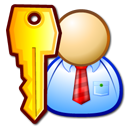Utilisateur:Yourek69/Livres/internet etc.
|
Ce livre utilisateur est une collection d'articles Wikipédia générée par un utilisateur qui peut être facilement sauvegardée, rendue sous forme électronique et commandée comme livre imprimé. Si vous êtes le créateur de ce livre et que vous avez besoin d'aide, voyez Aide:Livres (conseil généraux) et Projet:Livres Wikipédia (questions et assistance). | ||||||||
| [ Télécharger en PDF ]
[ Charger dans le Créateur de livres ] [ Commander le livre imprimé ] |
|||||||||
| [ FAQ ] [ Problèmes ] [ Aide ] [ Projet Wikipédia ] [ Modifications récentes ] | |||||||||
internet
modifier- Internet Protocol
- Couche application
- Couche de présentation
- Couche de session
- Couche de transport
- Couche de réseau
- Couche de liaison
- Couche physique
- Suite des protocoles Internet
- Modèle OSI









- Firebird (base de données)
- Kexi
- MySQL
- PostgreSQL
- Ingres (base de données)
- Apache Derby
- HSQLDB
- SQLite
- OpenOffice.org Base
- Buzhug
- 4ème Dimension (langage)
- FileMaker Pro
- Microsoft Access
- Microsoft SQL Server
- Oracle Database
- Sybase
- IBM DB2
- Paradox
- Progress
- Informix
- Teradata
- Adabas
- IBM System R
- Système de gestion de base de données
- Base de données
- Oracle (base de données)
- Langage d'interrogation de données
- Schéma conceptuel
- Table (base de données)
- Modèle entité-relation
- Propriétés ACID
- Système d'information
- Entrepôt de données
- Système d'information géographique
- Portail:Cryptologie
- Histoire de la cryptologie
- Mode d'opération (cryptographie)
- Cryptographie
- Cryptographie symétrique
- Chiffrement par bloc
- Chiffrement de flux
- Data Encryption Standard
- Standard de chiffrement avancé
- RC4
- Masque jetable
- Cryptographie asymétrique
- Rivest Shamir Adleman
- Cryptographie hybride
- Pretty Good Privacy
- Transport Layer Security
- Signature numérique
- Digital Signature Algorithm
- Cryptographie quantique
- Fonction de hachage
- MD5
- SHA-1
- Générateur de nombres pseudo-aléatoires
- Blum Blum Shub
- Fortuna (cryptographie)
- Stéganographie
- Échange de clés Diffie-Hellman
- Cryptanalyse
- Mathématiques
- Histoire de la cryptanalyse
- Analyse fréquentielle
- Attaque par dictionnaire
- Attaque par force brute
- Cryptanalyse linéaire
- Cryptanalyse différentielle
- Compromis temps-mémoire
- Courbe elliptique
- Corps fini
- Décomposition en produit de facteurs premiers
- Fonction booléenne
- Logarithme discret
- Modulo (informatique)
- Nombre premier
- Cryptologue
- Blaise de Vigenère
- François Viète
- Friedrich Kasiski
- Marian Rejewski
- Alan Turing
- William F. Friedman
- Adi Shamir
- Joan Daemen
- Whitfield Diffie
- Ralph Merkle
- Taher Elgamal
- Martin Hellman
- Vincent Rijmen
- Ronald Rivest
- Bruce Schneier
- Eli Biham
- David Wagner
- John Wallis
- Collision (cryptologie)
- Charles du Lys
- David Kahn
- MD6
- VideoCrypt
- S/MIME
- MULTI2
- Chiffre de Hill
- Chiffre affine
- S-1 (chiffrement)
- SHARK
- Internet
- Réseau informatique
- Courrier électronique
- World Wide Web
- Néologisme
- Internaute
- Protocole de communication
- Messagerie instantanée
- Poste à poste
- Hypertexte
- Navigateur Web
- Page Web
- Site Web
- Hyperlien
- World Wide Web Consortium
- Hypertext markup language
- JPEG
- Portable Network Graphics
- Graphics Interchange Format
- JavaScript
- Feuille de style
- Feuilles de style en cascade
- Animation
- Portable Document Format
- PostScript
- Word
- Fichier texte
- Image
- Usenet
- Web
- Tim Berners Lee
- IPv6
- Portail:GNU/Linux
- Portail:Logiciels libres
- Liste de logiciels libres
- Distribution Linux
- Portail:Programmation informatique
- Langage de programmation
- Perl (langage)
- Yukihiro Matsumoto
- Python (langage)
- Microsoft Office
- Visual Basic
- Macros
- Programmation orientée objet
- Simula
- Smalltalk
- C++
- Java
- SGBD
- Environnement de développement intégré
- Eclipse (logiciel)
- Programmation informatique
- Conception de logiciel
- Chronologie des langages de programmation
- Génie logiciel
- Bogue informatique
- Paradigme (programmation)
- Algorithmique
- Gestion de versions
- Optimisation du code
- Programmation système
- Refactoring
- Test (informatique)
- Test unitaire
- Test d'intégration
- Programmation concurrente
- Programmation déclarative
- Programmation fonctionnelle
- Programmation impérative
- Programmation logique
- Programmation orientée aspect
- Programmation orientée composant
- Programmation orientée prototype
- Programmation par contraintes
- Programmation par contrat
- Programmation par intention
- Programmation parallèle
- Programmation procédurale
- Programmation structurée
- Compilateur
- Débogueur
- Objective-C
- C sharp
- D (langage)
- Delphi (langage)
- Eiffel (langage)
- Groovy (langage)
- Java (langage)
- Lisaac
- PHP
- Ruby
- Algol (langage)
- APL (langage)
- Active Server Pages
- Assembleur
- BASIC
- C (langage)
- COBOL
- Natural
- Forth (langage)
- Fortran
- Limbo (langage)
- Logo (langage)
- LSE (langage de programmation)
- Pascal (langage)
- PHP: Hypertext Preprocessor
- Tool Command Language
- WLangage
- Haskell
- Objective Caml
- ML (langage)
- Lisp
- Common Lisp
- Scheme
- Extensible Stylesheet Language Transformations
- Clips (langage)
- Prolog
- Forme de Backus-Naur
- Langage de programmation exotique
- Portail:Sécurité informatique
- Portail:Microsoft
- Matériel informatique
- Alimentation PC
- Tour (informatique)
- Carte graphique
- Carte mère
- Carte de traitement sonore
- Carte télé
- Clavier d'ordinateur
- Clé USB
- Disque dur
- Moniteur d'ordinateur
- Graveur de disque optique
- Commutateur réseau
- Imprimante
- Lecteur de CD
- Lecteur de disquette
- Lecteur de DVD
- Mémoire vive
- Microprocesseur
- Palette graphique
- Modem
- Onduleur
- Ordinateur
- Ordinateur portable
- Assistant personnel
- Routeur
- Numériseur de document
- BeOS
- Berkeley Software Distribution
- DOS
- GCOS
- Mac OS
- Multiple Virtual Storage
- OS/2
- Solaris (système d'exploitation)
- Transaction processing facility
- UNIX
- Microsoft Windows
- Système temps réel
- VxWorks
- 3D Studio Max
- Blender
- Mozilla Firefox
- Adobe Flash
- GIMP
- GNOME
- Internet Explorer
- ITunes
- KDE
- LaTeX
- Mozilla
- MPlayer
- OpenOffice.org
- Paint.NET
- Adobe Photoshop
- Microsoft Visual Studio
- Winamp
- Blog
- Brevetabilité du logiciel
- Cyberculture
- Droit numérique
- E-Gouvernement
- Filtrage d'Internet
- Format ouvert
- Fracture numérique
- Geek
- Monde virtuel
- Monitoring de site web
- Moteur de recherche
- Nerd
- Société de la connaissance
- Technologies de l'information et de la communication
- Wiki
- Advanced Audio Coding
- Asymmetric Digital Subscriber Line
- Advanced Technology Extended
- Baladodiffusion
- Bluetooth
- Digital Visual Interface
- Ethernet
- Fiber To The Home
- Profil ICC
- ISO 9660
- Joint Photographic Experts Group
- Musical Instrument Digital Interface
- Multipurpose Internet Mail Extensions
- MPEG-1/2 Audio Layer 3
- Microformat
- Moving Picture Experts Group
- OpenDocument
- PCI Express
- Personal Computer Memory Card International Association
- POSIX
- Pair à pair
- Request for comments
- Standards du Web
- Unicode
- Universal Serial Bus
- Video Graphics Array
- Wi-Fi
- Worldwide Interoperability for Microwave Access
- X64
- X86
- Méthode formelle (informatique)
- Théorie des graphes
- Théorie de la complexité
- Théorie de la calculabilité
- Théorie des langages
- Théorie de l'information
- Cybercrime
- Fuite d'information
- Logiciel espion
- Logiciel malveillant
- Pare-feu (informatique)
- Pirate informatique
- Virus informatique
- Apache Software Foundation
- Fondation Mozilla
- Fondation pour le logiciel libre
- Internet Corporation for Assigned Names and Numbers
- Institute of electrical and electronics engineers
- Internet Engineering Task Force
- Organisation internationale de normalisation
- Object Management Group
- Open Source Initiative
- Club informatique des grandes entreprises françaises
- CNIL
- Syntec
- Mouvement pour une union nationale et collégiale des informaticiens
- April (association)
- 3dfx
- Adobe Systems
- Apple, Inc.
- Bull
- Dell
- Hewlett-Packard
- International Business Machines Corporation
- Intel Corporation
- Microsoft
- Motorola
- NEC Corporation
- Norton AntiVirus
- NVIDIA
- Silicon Graphics
- Sun Microsystems
- Xerox
- Yahoo!
- Abréviations en informatique
- Liste d'abréviations de la conception et fabrication assistée par ordinateur
- 3C
- AMPS (informatique)
- Abréviations en informatique, caractère non alphabétique
- Abréviations en informatique C
- Abréviations en informatique D
- Abréviations en informatique E
- Operations And Maintenance
- Abréviations en informatique A
- Abréviations en informatique B
- Carriage Return Line Feed
- Abréviations en informatique F
- Scott Fahlman
- Abréviations en informatique G
- Abréviations en informatique H
- Abréviations en informatique I
- Abréviations en informatique J
- Java Metadata Interface
- Abréviations en informatique K
- Abréviations en informatique L
- LDD
- LAMP
- Langage SMS
- Abréviations en informatique M
- M17n
- MAMP
- Message of the Day
- Méthode d'analyse de risques informatiques optimisée par niveau
- Méthode harmonisée d'analyse des risques
- Abréviations en informatique N
- N/a
- Not safe for work
- Abréviations en informatique O
- Operationally Critical Threat, Asset, and Vulnerability Evaluation
- Abréviations en informatique P
- PowerPoint Show
- Abréviations en informatique Q
- Abréviations en informatique R
- Abréviations en informatique S
- SAMP
- SEMMA
- Abréviations en informatique T
- Abréviations en informatique U
- Abréviations en informatique V
- Abréviations en informatique W
- Abréviations en informatique X
- Abréviations en informatique Y
- Abréviations en informatique Z
- Systèmes de jeux de rôle
- Avantages et défauts d'un personnage de jeu de rôle
- Caractéristique (jeu de rôle)
- Charte angoumoise
- Classe de personnage
- Compétence (jeu de rôle)
- Donjon (jeu de rôle)
- Durée de vie (jeu)
- Effet de seuil
- Équipement (jeu de rôle)
- Expérience (jeu de rôle)
- Interprétation du rôle
- Mage (jeux)
- Meneur de jeu
- Niveau (jeu de rôle)
- Personnage joueur
- Personnage non-joueur
- Personnage silencieux
- Peuple du personnage
- Point de vie
- Porte-monstre-trésor
- Probabilités des dés en jeu de rôle
- Quête (jeu de rôle)
- Scénario de jeu de rôle
- Toile de fond
- Voleur (classe de personnage)
- Système d'évaluation des jeux vidéo
- British Board of Film Classification
- Computer Entertainment Rating Organization
- Entertainment Software Rating Board
- Entertainment and Leisure Software Publishers Association
- Pan European Game Information
- Syndicat des éditeurs de logiciels de loisirs
- Unterhaltungssoftware Selbstkontrolle
- Videogame Rating Council
- Application portable
- Architecture de participation
- Automation
- Bootsplash
- Catalogue interactif
- Clone (informatique)
- Créateurs application portable
- Didacticiel
- Document (informatique)
- Dépendance logicielle
- Easter egg
- Écran de rappel
- Éditeur d'équation
- Extension (logiciel)
- Filtre (informatique)
- Harceliciel
- Installation (informatique)
- Killer application
- Liste déroulante
- Live USB









